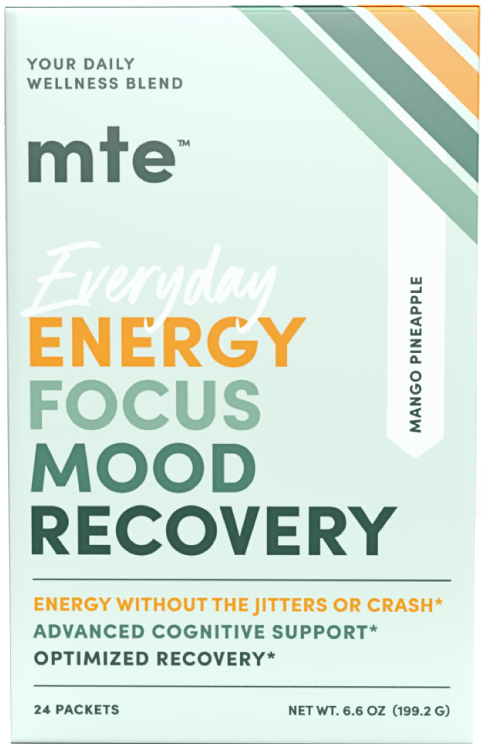
Theacrine vs Caffeine for Energy: Is it Even a Competition?
To make a long story short: no. Theacrine makes caffeine look like a bad joke. For the long answer… well, you’re already here. Theacrine has always been there, inside the kucha leaf and even coffee; but it’s always stood in the shadow of caffeine. Which, honestly, was a mistake on the part of humanity. Not our best choice.
But it turns out this naturally-occurring compound does way better things for our energy (and our health) than excessive caffeine does. Welcome to our handy guide to theacrine; follow along as we try to convert you from your wayward caffeine ways:
What is Theacrine?
Theacrine is a purine alkaloid called tetramethyluric acid, which is probably why everyone just refers to it as theacrine. It’s not not tea-sourced; it’s just from a wild version called kucha, still in the Camellia family, which is where green and black tea live. Which means it’s also one of the many places in which you’ll find caffeine.
Theacrine is considered a nootropic because consuming it enhances things like energy, focus, memory, motivation, and cognition – all the same things caffeine (also a nootropic) does. But theacrine works differently than caffeine, so its benefits aren’t accompanied by the jitters, irritability and heart pounding caffeine causes. More on that in a minute.
What is Teacrine®?
Teacrine® is a pure, bioidentical extract and is the commercialized form of theacrine. This is the form you’ll find theacrine in in wellness products like supplements and healthy energy drinks. So when you see Teacrine® on our ingredients list with that registered trademark symbol punctuating it, don’t worry – it’s not a weird, synthetic thing mixed in a lab and laced with arsenic or formaldehyde or whatever. It’s just a brand name for regular old theacrine.
Okay, back to theacrine and why it should replace caffeine as our go-to energy booster –
Theacrine vs Caffeine
There are a couple reasons the world relies on caffeine and not theacrine (yet!) for their daily energy-boosting drink. First, caffeine is the loudest of the naturally-occurring energy-boosters, and as politics have shown us, the loudest people get the most attention, even when they’re definitely not the smartest.
The other reason theacrine isn’t at the forefront of the energy game is that it was previously thought that theacrine and its abilities were inextricable from caffeine. Good news – it’s not! Research has confirmed that even though theacrine is structurally similar to caffeine, the body metabolizes it on its own.
Theacrine is thought to act on receptors involved in memory, mood and motivation, providing an energy boost along with a calming effect. It’s a bunch of chemical equations and stuff – not gonna pretend we understand all the details, but you can find them here. It also seems to enhance and extend the positive effects of caffeine. Or the other way around. That’s still a chicken-egg mystery at this point in time.
Suffice to say, since it turns out you don’t need to supplement with caffeine to effectively supplement with theacrine, researchers have been able to look at them separately in an academic setting to suss out theacrine’s bioactivity and health benefits. Theacrine may offer things like:
- Locomotor activation
- Less fatigue
- Reduced inflammation
- Better cognitive performance
- Improved mood
- Metabolic support
Many of the same things caffeine has to offer, right? But here’s where the parallels become... unparallel. Theacrine seems to have a longer time to onset than caffeine, but effects that last longer. Theacrine has also not been observed to cause negative sensations caffeine can, like a crash, shakiness and other not-so-fun things like stress sweats.
Plus, unlike caffeine, theacrine is not known to be a habit-forming nootropic, so there’s no indication of tolerance buildup or nasty withdrawals if you stop using it.
Clinical Evidence for Theacrine Supplementation
There’s a solid body of academic literature on theacrine’s potential health benefits; studies indicate it may be useful as a stimulant without adaptation or habituation, an antioxidant, for enhancing long-term energy, and for promoting positive mood and mental clarity.
A 2016 study explored Teacrine® in typical daily doses many people would take of caffeine – 200 and 300mg – daily for 8 weeks. Even in the 300mg group (which, for reference, is equivalent to 3+ cups of coffee) they found no changes in biomarkers that indicate habituation or tolerance, and no tachyphylactic (read: increased heart rate) response, meaning it did all the same stuff caffeine does but without the bad – clinically.
A 2020 review of the current literature on theacrine’s energy-boosting (and other) abilities came out with some pretty interesting information. In clinical settings, theacrine has held up under fire. In studies,:
- The kucha leaf, which has around 2.83% theacrine and 2.13% caffeine, demonstrated stronger antioxidant activity than the green tea leaf, which has 4.64% caffeine but no theacrine.
- Theacrine upregulated expression of sirtuin, which plays a vital role in metabolism, aging and death, organ longevity, and cell proliferation.
- A single dose of theacrine increased energy levels and muscle capacity, improved mood, and reduced fatigue.
- Self-reported energy levels remained increased for at least 3 hours post-consumption without a significant effect on heart rate or blood pressure.
- A pre-workout supplement of just 10mg improved focus.
- Oral administration of theacrine significantly reversed fatigue-induced learning and memory impairment more than administration of theacrine and caffeine together.
A 2022 double-blind study on Teacrine® supplementation resulted in significant energy enhancements coupled with reduced fatigue. This was accompanied by a trend of improved concentration. On top of those results, there were no changes in vascular function and no negative experiences were reported or observed. Subjects reported large and positive effects on energy, fatigue, distress, concentration, motivation to exercise, and libido.
We could go on for quite a while, but suffice to say, whether or not theacrine is a healthy way to boost energy without your system becoming dependent on it for that purpose isn’t exactly a contentious debate.
Contraindications for Theacrine Consumption
There’s always a catch, right? Maybe not! That 2016 study had literally 0 side effects or biological markers indicating complications over a course of 8 weeks of theacrine supplementation at 300mg daily. And this remains largely true across studies. However, that doesn’t mean that everyone will have the same experience; we’re all different.
You may experience adverse side effects to theacrine if you:
- Are sensitive to caffeine. At a high dose, you may feel some of the anxious effects.
- Are on certain medications. Low doses of theacrine may cause drowsiness in some people, especially if they are on sedatives or hypnotics.
- Have a predisposition for addiction. If taken at too high a dose for a long time (up to 400mg is considered safe and acute toxicity has not been fully explored), you may overstimulate yourself and develop a dependence.
- Have chronic sleep problems. Theacrine can disrupt sleep if taken too close to bedtime.
- Have a digestive disorder. In people with digestive issues, theacrine may cause discomfort and/or nausea.
- Theacrine’s safety has not been studied in people who are pregnant and/or nursing.
As always, any time you’re thinking of adding a supplement to your daily regimen, you should talk to your doctor first, especially if you have a chronic condition and especially if you are on medication(s). We’ve had great experiences with theacrine, and so have our customers, which is why we chose it as the main energy-boosting nootropic in MTE.
If you’ve been looking for a way to cut out coffee and/or reduce your caffeine intake while still having a resource that gives you an energy boost when you need it, theacrine (as Teacrine®, of course) is the ideal way to have your cake and eat it, too.



